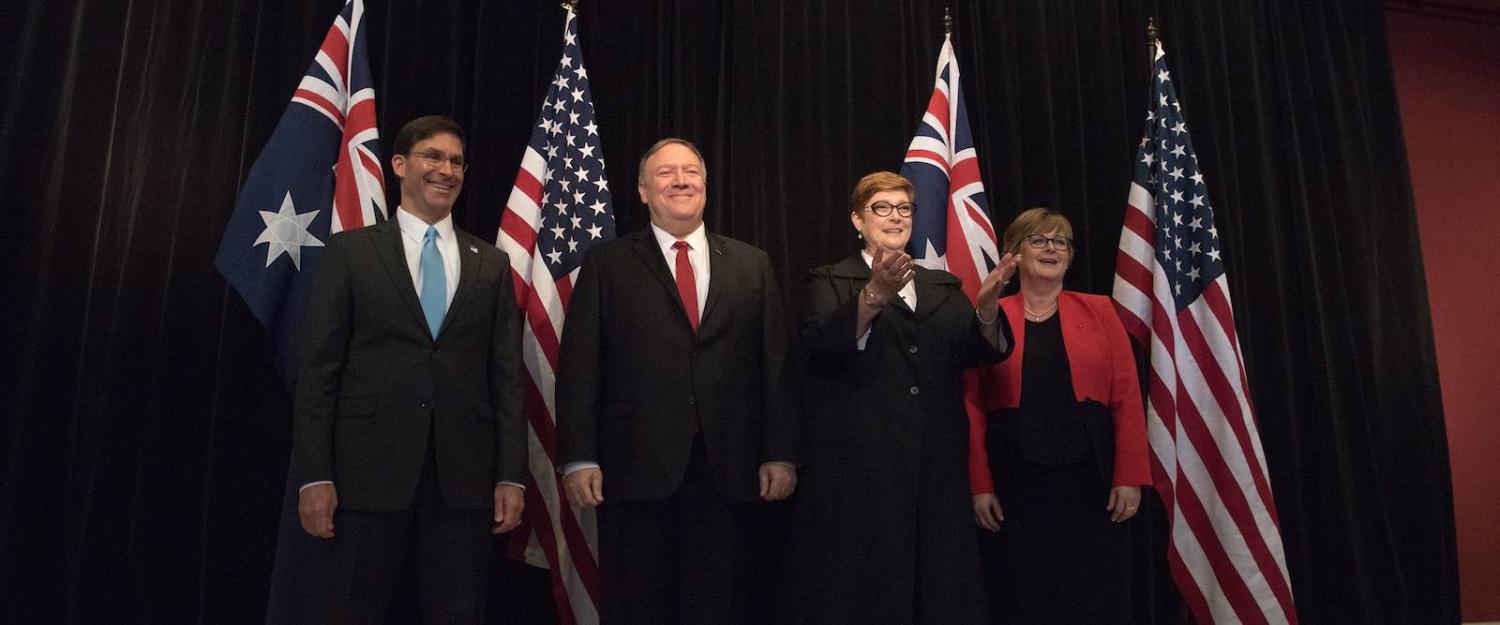Washington has asked for Australian support to participate in a coalition maritime Persian Gulf security force. The request was formally announced as part of Sunday’s AUSMIN talks.
It is the type of request that Australia would prefer not be made. Washington’s unilateral withdrawal from the 2015 Joint Comprehensive Plan of Action and its subsequent pursuit of a “better deal” – without actually saying what kind of “better deal” was envisaged – only served to open a Pandora’s box. It was a tactic lacking a strategic aim, and it had little support among Washington’s closest allies.
Iran’s response was hardly difficult to predict: use proxies to raise the cost to local allies of the US, and selectively disrupt maritime trade in the Persian Gulf to raise the cost more broadly. In other words, attack some targets, seize a ship when the UK seizes an Iranian one, and (in the last few days) commandeer another vessel on a charge of “oil smuggling”. The fact that the Trump administration’s “maximum pressure” campaign lacked any additional protective measures with a multilateral face says much about how well-crafted the White House’s planning is.

For all the talk about what’s in Australia’s “sovereign interest”, the decision will come down to a pretty simple calculation – what is the cost of saying no? It’s pretty likely that most people in Canberra will be wary about having Australia drawn into a confrontation originating largely in Donald Trump’s desire to dismantle his predecessor’s legacy, rather than in any grand principle.
This wariness is echoed in the general reluctance to sign up to Washington’s scheme. Germany has already declined, while Britain has previously suggested a European maritime force. Some Gulf states have also sent mixed signals, perhaps having a bob each way with a seven-member UAE coast guard delegation meeting Iranian counterparts last week for the first time since 2013, and Qatar doing the same.
For all the talk about what’s in Australia’s “sovereign interest”, the decision will come down to a pretty simple calculation – what is the cost of saying no?
It is difficult to see Canberra not signing up in some way, given the request came directly from the Secretary of State and Secretary of Defense, and Prime Minister Scott Morrison has been invited next month to only the second state dinner given by Trump since taking office, and the first for an Australian prime minister since John Howard in 2006. Any government would find it hard to say no in those circumstances, regardless of the military and public service advice it received.
The government has some wriggle room to provide a small contribution rather than a vessel to whatever form the proposed coalition task group takes, with no RAN major fleet unit currently in the region that could have been re-tasked relatively easily. Small niche contributions can satisfy superpower demands for participation with as small a footprint as is felt to be politically astute. Former defence minister Kim Beazley has written about the last time Canberra had to deal with the (admittedly much more dangerous and complex) “tanker war” in the 1980s and its decision to send a clearance diving team as Australia’s specialist contribution.
Australia is very experienced in modifying military commitments to suit its perceived national interests. In this case, there is little justification for Australia to contribute to a coalition maritime protection force, but the decision won’t be based on necessity and will instead have everything to do with politics.
While I would argue that Australia would be well-advised to steer clear of this one, I would not be surprised if Canberra does answer Washington’s call with a contribution sufficient to be claimed as part of a coalition – but without the likelihood of Australian forces being put in harm’s way or becoming decisively committed.

